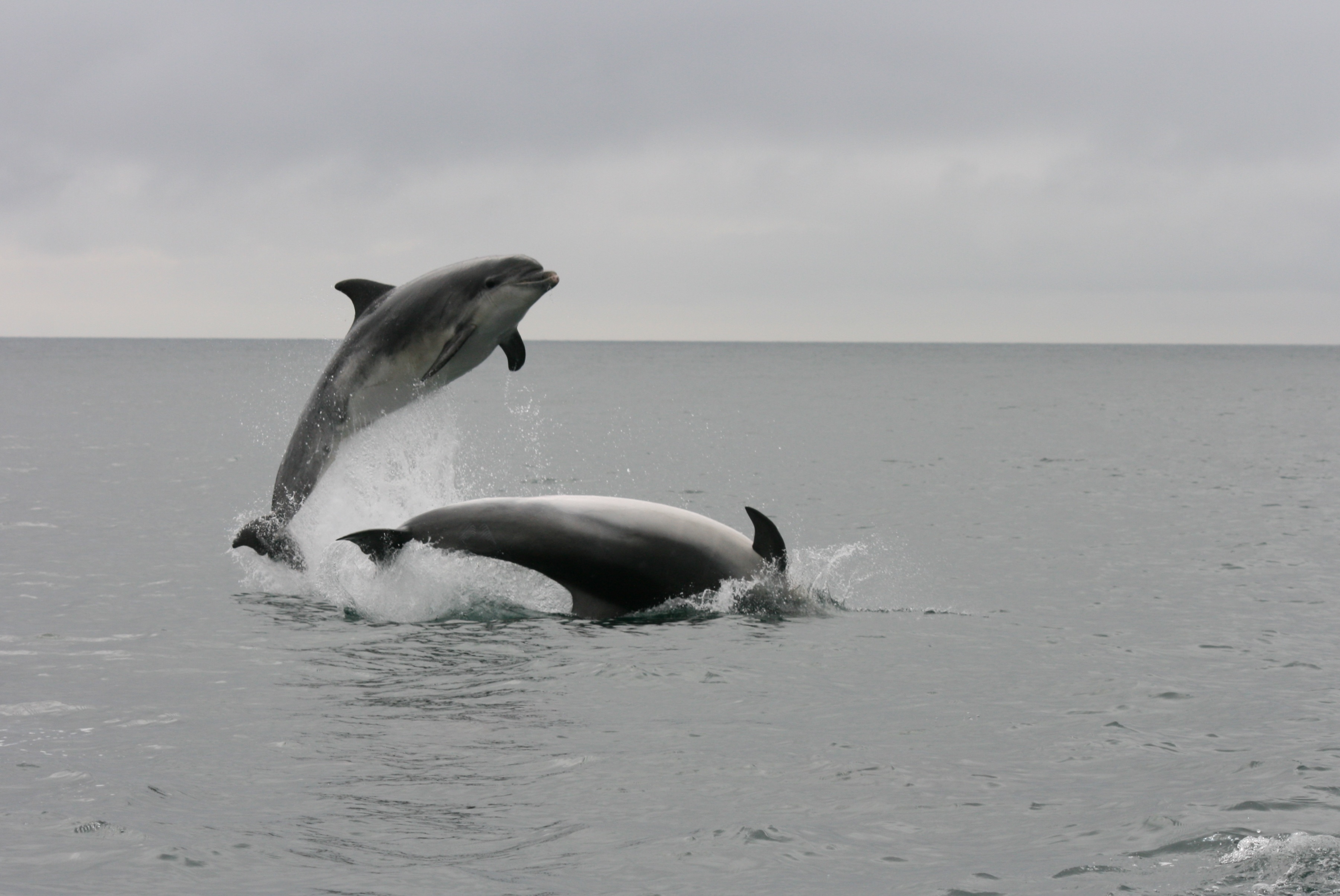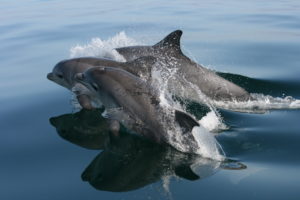Bottlenose dolphin conservation in the British Isles

Understanding relationships between different dolphin populations in the British Isles
This project has now finished
The problem
The role of a network of marine protected areas is to ensure the protection of species’ key life stages and connectivity between populations. Marine protected areas have been designated under European legislation to ensure the conservation of bottlenose dolphins. This species forms small, localised communities in the British Isles coastal waters.
However, connectivity among these communities, and therefore the role of protected areas in facilitating connectivity, is not well understood. This is because different types of genetic markers were used in each of the previous studies and consequently we do not know how related the populations are to each other.
Finding out if they are related will tell us whether the dolphins are able to move safely and easily between the protected areas.
The solution
 A collaborative project led by the University of St Andrews and the University College Cork will use a new type of genetic marker (Single Nucleotide Polymorphisms, which are a difference in a base in the DNA sequence), which can be easily compared across studies, to define the population structure of all bottlenose dolphins in the British Isles. This will be the first time we’ve been able to see the relationship between different groups of dolphins in our waters and to what extent they overlap.
A collaborative project led by the University of St Andrews and the University College Cork will use a new type of genetic marker (Single Nucleotide Polymorphisms, which are a difference in a base in the DNA sequence), which can be easily compared across studies, to define the population structure of all bottlenose dolphins in the British Isles. This will be the first time we’ve been able to see the relationship between different groups of dolphins in our waters and to what extent they overlap.
We will also investigate whether environmental differences among the habitats used by each community have led to adaptations to those local habitats. The results will be integrated with published studies on habitat use, ecology and site fidelity to evaluate the suitability of the existing network of protected areas for the long-term conservation of the species. We hope to confirm that there is sufficient, varied habitat to support our dolphin population, but if there isn’t, we will be in a good position to make sound recommendations on what they do need.
We will also collect information that will enable us to determine the impacts of anthropogenic activities and to estimate population trends in the future.
